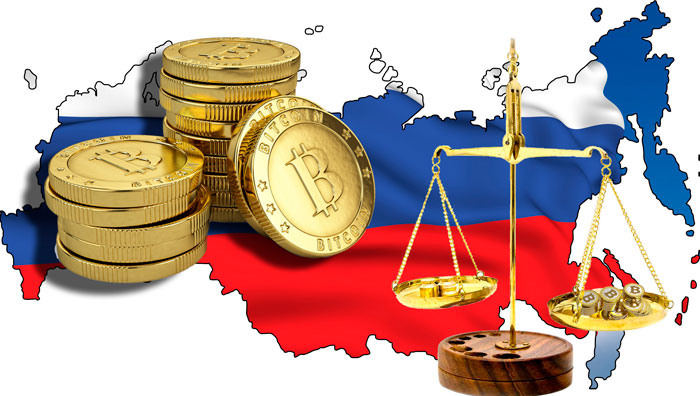
It seems that the Russian authorities have nevertheless taken the path of legalizing cryptocurrencies in Russia, despite alldisagreement. The new version of the draft law “On Digital Financial Assets” allows cryptocurrency exchanges to work with digital currencies, but there remains a lot of uncertainty.
Legalization of cryptocurrencies in Russia
With the new version of the bill prepared inOctober, familiarized with RBC. According to recent amendments, cryptocurrency exchanges will be able to provide the opportunity to trade in digital financial assets (CFA), both Russian and foreign.
In other words, exchanges will be able to legally tradenot only digital assets issued in Russia, but also foreign ones. Such an approach may attract additional investment from abroad, which will positively affect the development of the cryptocurrency industry in the country. However, not all exchanges will be allowed to work with cryptocurrency.
Any legal entity can register the exchange, notregistered in offshore areas. The organizers need to have an authorized capital of 50 million rubles, which automatically eliminates small players. Only representatives of large business will be able to have such a “cash pillow”, because in addition to this money, a budget is also needed to create the exchange itself. This condition was introduced in case the exchange would have to reimburse its customers for losses, and this is a reasonable initiative.
Can Bitcoin Be Banned?
There is a negative point in the new version of the document. CFAs do not include traditional cryptocurrencies such as Bitcoin (BTC). The official exchanges discussed above will not be allowed to add them to the listing. So what happens, Bitcoin, ether and other currencies will be banned? No. According to the document, there is no talk of a complete ban on the circulation of traditional cryptocurrencies.
Official cryptocurrency exchanges will be very differentfrom what we used to see. Tokens related to real business, goods, etc. will be available on them for trading. Cryptocurrencies, in turn, are rather a means of payment, and in the document they are not recognized as legitimate.
It turns out that there will be some kind of division in the countryindustry: on the one hand there will be legal platforms with tokens, on the other — Bitcoin and the like. The main question is whether the state deliberately avoided the issue of banning BTC in the bill, or whether this is a defect that will be corrected in the future.
Expert Comments
He will take an interest from experts about the reason for the desire of lawmakers to get away from the specific generally accepted terminology of the cryptocurrency market and whether in the end Russians will be allowed to conduct operations with bitcoin.
The subject of cryptocurrency regulation is obviouslygives the authorities a huge inconvenience, believes Alexei Kirienko, managing partner of EXANTE. According to him, this is indicated by the number of transfers of consideration of the draft law “On CFA”.
“The bill looks crude, and the wording iscause confusion. For example, CFA is a very broad concept. There are already established terms in the world - utility and security tokens. Sooner or later, everyone will come to these definitions, and there’s no need to reinvent them, ”- the expert argues.
The authorities can be driven by the desire to distance oneself as much as possible from the already issued cryptocurrencies and tokens, agrees Dmitry Zakharov, director of the Blockchain Lawyers continuing education program.
“Russia is far from resolving traditionalcryptocurrencies such as bitcoin and tokens issued as a result of ICO / IEO procedures already carried out. To avoid speculation on this subject, the legislator introduces new terminology, "- he suggests.
In the new version of the bill, the mostThe term “digital currency” is notable. As explained by the advisor to the IP/IT practice of Tomashevskaya & Partners, member of the Commission on Legal Support of the Digital Economy of the Moscow Branch of the Russian Bar Association Roman Yankovsky:
- digital currency does not give any claim rights, including claim security rights, like stablecoins;
- it is not approved by the Bank of Russia (otherwise it becomes a digital operating symbol);
- digital currency is not the currency of another state.
“If these three criteria are met, then we getprohibited digital currency. Such, for example, will be considered bitcoin. Security tokens and stablecoins are regarded by lawmakers as a digital financial asset, utility tokens as utilitarian digital law, the Russian national “cryptocurrency” and the conditional “Libra” from Russian banks as digital operational signs, ”- Yankovsky explained.
It is possible that the Russian government plans to create its own crypto-exchanges, like in China or the USA, which, however, should not violate the hegemony of the Central Bank, continues Alexei Kirienko.
“As a result, officials are between Scylla andCharybdou: on the one hand, they must put forward a bill that does not create a feeling of a total ban, and on the other, listen to the Central Bank, which protects its currency monopoly. ”
Given the general negative attitude towards cryptocurrencies by the Central Bank, the expert believes that legal trading in digital currencies is unlikely to become a reality in the near future.
Let us remind you that the bill “On CFA” is already in its second yearis undergoing amendments in preparation for the second reading. The day before, the Chairman of the State Duma Committee on the Financial Market, Anatoly Aksakov, expressed hope that the bill could be adopted before the end of 2019.
However, a member of the council fordevelopment of the digital economy under the Federation Council Nadezhda Surova. In her opinion, the lack of consensus between representatives of various blockchain companies delays the adoption of the law for at least a year.
</p>


